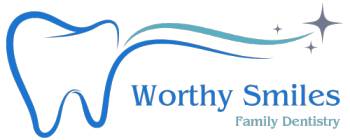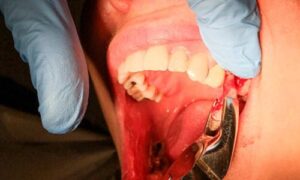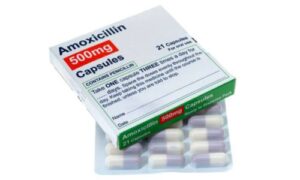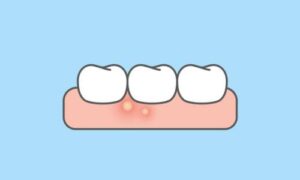Gingivitis, a common gum disease characterized by inflammation of the gums, affects millions of people worldwide. If left untreated, it can cause discomfort and bleeding and even lead to more severe oral health issues. In the quest for effective home remedies, many have turned to hydrogen peroxide as a potential solution. But does hydrogen peroxide really cure gingivitis? Let’s explore this question and understand the role of hydrogen peroxide in oral health.
What is Hydrogen Peroxide?
Hydrogen peroxide (H2O2) is a chemical compound of hydrogen and oxygen. It is a colorless liquid with strong oxidizing properties, commonly used as a disinfectant and bleaching agent. You might have encountered it in your household as a solution for cleaning wounds or whitening teeth.
The Role of Hydrogen Peroxide in Oral Health
Hydrogen peroxide has been used for decades in dentistry for its antibacterial properties. It can help kill harmful bacteria contributing to gingivitis and other oral health issues when applied to the gums. Additionally, it can help reduce inflammation and promote gum tissue healing.
Using Hydrogen Peroxide for Gingivitis
Many wonder whether using hydrogen peroxide as a mouthwash can effectively treat gingivitis. While hydrogen peroxide can help kill bacteria and reduce inflammation, it is essential to use it correctly and in moderation.
Here’s a simple and safe way to use hydrogen peroxide for gingivitis:
- Dilute the hydrogen peroxide: Pure hydrogen peroxide can be too harsh and may cause irritation or damage to the delicate tissues in your mouth. It’s best to dilute it with equal water to reduce its strength.
- Swish the solution in your mouth: Take a small amount of the diluted hydrogen peroxide solution and swish it around your mouth for about 30 seconds to one minute. Be sure not to swallow the solution.
- Spit out the solution: After swishing, spit out the solution and rinse your mouth thoroughly with water to remove any remaining hydrogen peroxide.
- Repeat daily: For best results, use the hydrogen peroxide mouthwash once a day as part of your oral hygiene routine. However, it’s essential not to overdo it, as excessive use may lead to irritation or damage to the gums.
The concentration of hydrogen peroxide in store-bought teeth whitening kits can be as high as 10%. While hydrogen peroxide can be a helpful tool in whitening teeth, it’s important to use it correctly to avoid damaging your gums or tooth enamel. Always follow the directions on the package and consult with your dentist before using any teeth whitening product. Source.
Other Tips for Maintaining Oral Health
While hydrogen peroxide can be a helpful addition to your oral care routine, it’s essential to remember that it is not a substitute for regular brushing, flossing, and professional dental cleanings. Here are some additional tips for maintaining good oral health:
- Brush your teeth twice a day: Use fluoride and soft-bristled toothpaste to remove plaque and bacteria from your teeth and gums.
- Floss daily: Flossing helps remove food particles and plaque from between your teeth, where your toothbrush can’t reach.
- Visit your dentist regularly: Schedule regular dental checkups and cleanings to detect oral health issues early and prevent gingivitis and other gum diseases.
- Eat a balanced diet: Limit sugary and acidic foods and beverages, as they can contribute to tooth decay and gum disease. Instead, choose a diet rich in fruits, vegetables, and whole grains.
Can You Rinse Away Gingivitis with Hydrogen Peroxide?
The answer is not so clear-cut. While some studies suggest hydrogen peroxide might reduce gum inflammation, others haven’t found significant benefits. Here’s why:
- Limited Effect: Hydrogen peroxide’s antibacterial effect might be temporary and may not reach all the bacteria hiding below the gum line.
- Potential Irritation: Undiluted or improperly diluted hydrogen peroxide can irritate your gums, worsening the problem.
- Short-Term Solution: Even if it temporarily reduces inflammation, hydrogen peroxide doesn’t address the root cause of gingivitis—plaque buildup.
Safer and More Effective Solutions:
So, what can you do to tackle gingivitis effectively? Here are some proven strategies:
- Brushing: Brush your teeth twice daily for two minutes, using a soft-bristled brush and fluoride toothpaste. Pay close attention to the gum line.
- Flossing: Floss daily to remove plaque and food particles from between your teeth.
- Regular dental checkups: Schedule regular dental cleanings to remove built-up plaque and tartar (hardened plaque) that brushing and flossing can’t reach. Your dentist can also identify and address any underlying issues contributing to gingivitis.
When to Consider Hydrogen Peroxide (with Caution):
If your dentist recommends using a hydrogen peroxide rinse as part of your gingivitis treatment plan, here’s what to keep in mind:
- Strict Dilution: Only use a solution diluted according to your dentist’s instructions, typically 1.5% to 3% hydrogen peroxide mixed with equal parts water.
- Short-Term Use: Don’t use a hydrogen peroxide rinse for extended periods, as it can disrupt the natural balance of bacteria in your mouth.
- Sensitivity Watch: If you experience discomfort, stop using the rinse immediately and consult your dentist.
Conclusion of does hydrogen peroxide cure gingivitis
While hydrogen peroxide can help kill bacteria and reduce inflammation in the gums, it is not a guaranteed cure for gingivitis. It should be part of a comprehensive oral care routine that includes brushing, flossing, and regular dental checkups. If you suspect you have gingivitis or any other oral health issue, it’s essential to consult with your dentist for proper diagnosis and treatment. With appropriate care and attention to oral hygiene, you can maintain healthy gums and a beautiful smile for years.
At Worthy Smiles, we understand the importance of maintaining healthy gums for a beautiful smile and overall well-being. Our experienced team is dedicated to providing preventive care, including thorough cleanings and personalized oral hygiene knowledge. If you experience any signs of gingivitis, we will work with you to develop a treatment plan to restore your gum health and keep your smile shining brightly. Schedule an appointment today, and let us guide you towards optimal oral health!
Faqs
Q: Is hydrogen peroxide a cure for gingivitis?
A: No, hydrogen peroxide isn’t a guaranteed cure. While it might have some temporary antibacterial effects, it doesn’t address the root cause – plaque buildup. Brushing, flossing, and regular dental cleanings are the most effective ways to combat gingivitis.
Q: Can hydrogen peroxide help with gingivitis symptoms?
A: Maybe, in some cases. Studies haven’t been conclusive, and its effects might be temporary. Additionally, it’s crucial to dilute it properly to avoid gum irritation.
Q: When might a dentist recommend hydrogen peroxide for gingivitis?
A: Your dentist might suggest a diluted hydrogen peroxide rinse as part of your treatment plan, but only for short-term use and with specific instructions.
Q: Are there any risks associated with using hydrogen peroxide for gingivitis?
A: Yes. Undiluted or improperly diluted solutions can irritate your gums. Additionally, prolonged use can disrupt the natural balance of bacteria in your mouth.
Q: What are the best ways to treat gingivitis?
A: Consistent oral hygiene is key. Brush your teeth twice daily with fluoride toothpaste, floss daily, and schedule regular dental cleanings to remove plaque buildup.
Q: What else can I do to keep my gums healthy and prevent gingivitis?
A: Maintain a healthy diet with minimal sugary foods and drinks, don’t smoke, and manage stress.














